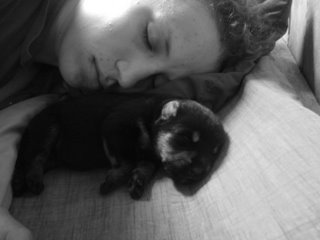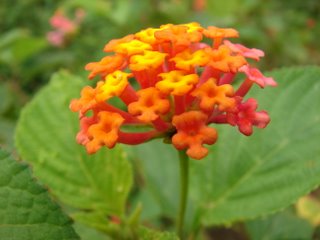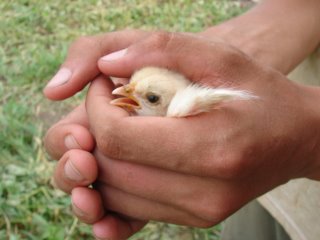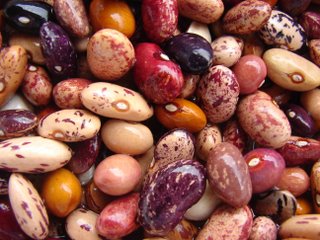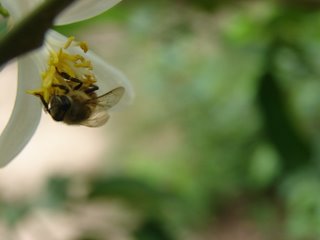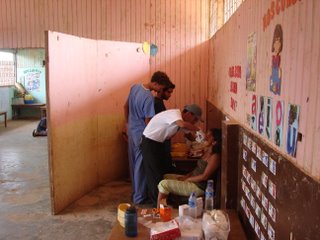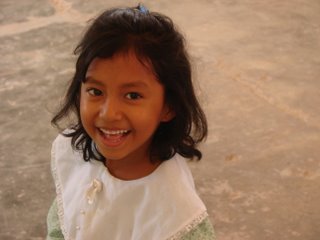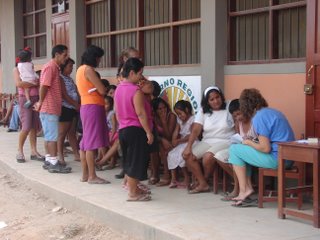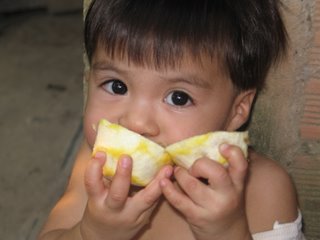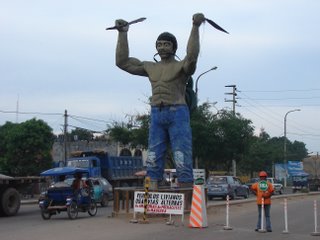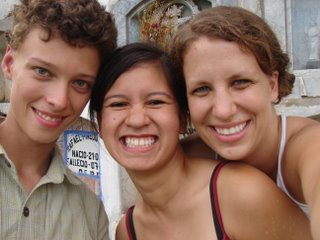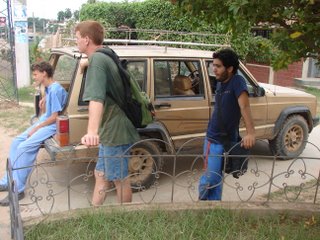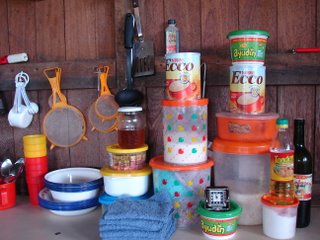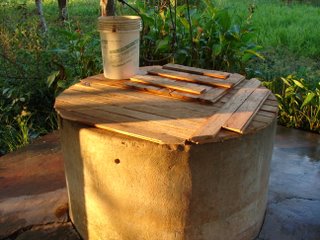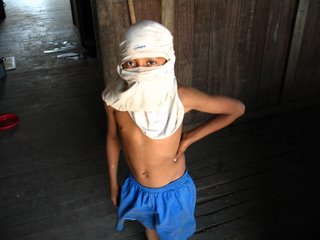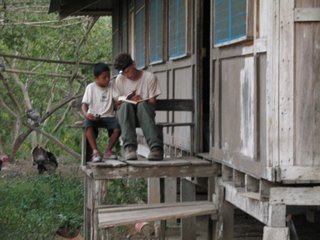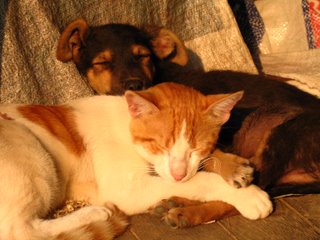Aguaje
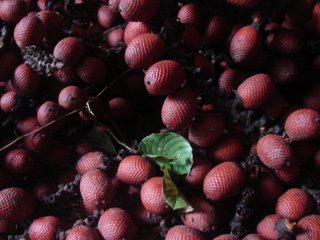
Jenni, our project team leader and guide in this new land, has been gone to the States now for a month. She'll be back soon, but our Peruvian friends and neighbors have begun to think that we, incapable foreigners from the north, are starving and desperate without her.
They address this obstacle with food donations. We are sometimes more excited to accept than others. Tayna, a pastor's wife and our nearest neighbor at the mision, has hand carried breakfast over to the apartment several times-hot milk, papaya, bread, jello.
People are always coming up to us and asking, "Are you hungry? Do you have food?"
One of the most common donations is a basket of aguaje, a jungle fruit the Peruvians find especially delicious (I'm not sure exactly how to spell it, if you know, please tell me).
None of us like aguaje. It has a thick brown scale layer like a pinecone that you have to peel off with your teeth and spit out, all fibrous and bark like, before you can get to the fruit. The inner part is a bright orange melon color, and the layer of edibleness is surprisingly thin-two bites and you reach the hard pit.
John described the flavor as "rancid." Jackson shrugged and said "disappointing." I think it tastes like rotten cheese.
Anyway, the current joke is that everyone-Tayna, the Medinas, Hermana Blanca, Veronica at church-is so excited to give us aguaje. We'll be in their homes and they'll hold up a huge basket of these nasty fruits. They ask, "Do you like aguaje?"
And what can I say?
I always smile and nod and of course they give us the whole entire container. Or maybe it's aguaje juice, or aguaje pops, or aguaje gelatin.
Luckily, the Peruvians who work with us out at the land love aguaje, and it is never wasted.
